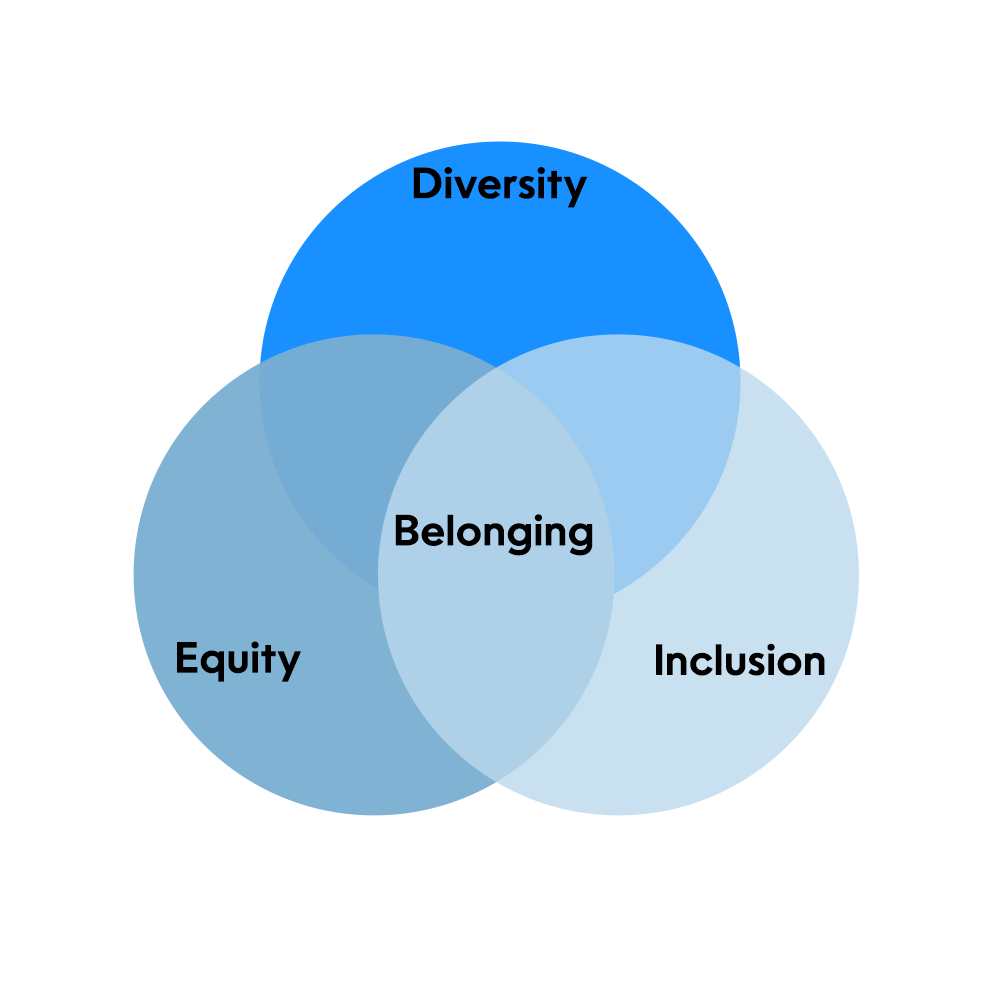|
Let's talk about diversity, equity, inclusion, and belonging (DEIB). These are some of the most important topics of our time, and they're something that I've been passionate about for years. As a white cisgendered male, I know that I have a lot to learn about this work, but I also know that I'm in a position of power and influence within my organization. That means that I have a responsibility to do what I can to create a more equitable and inclusive workplace. One thing that I've noticed over the years is that a lot of organizations talk about DEIB, but they don't always have a clear focus on outcomes. What are the KPIs? What are the things that we're actually measuring to know if we're making progress? If we've been doing this work for 60 years, why aren't we further along? These are important questions that we need to ask ourselves. I recently had a profound thought about this. What if another department used the same excuse? What if the CEO asked the finance department, "What's our profit for this quarter?" and Finance said, "No, we're just focused on the process." That wouldn't fly in any other boardroom. Why does it fly in the DEI space? We need to be clear about our goals and measure our progress if we want to make real change. One of the things that I appreciate about the work that's being done in DEIB is that it's opening up the dialogue and getting people's minds in the right space. It's giving us pragmatic tools to understand and feel comfortable doing this work. But what about the people who don't understand the importance of DEIB? How do we get through to them? I think it's important to start by understanding who the right audience is. Who is naturally inclined to agree with this perspective, and who is not? Those are the people who probably need to hear it more, even though it might be a little bit more contentious. We also need to be intentional about the outcomes we're trying to achieve. If we don't have an outcome in mind, what are we really doing? So, what are those key outcomes that really matter when it comes to DEIB? One important acronym to remember is ROI: representation, opportunity, and inclusion. We need to focus on increasing representation of marginalized groups in our organizations, creating opportunities for them to succeed, and ensuring that they feel included and valued. But it's not enough to just talk about these outcomes. We need to measure them and hold ourselves accountable. This means collecting data, analyzing it, and making changes when we're not meeting our goals. It also means being willing to have uncomfortable conversations and make difficult decisions. But if we're not willing to do that, we're not really committed to DEIB. In conclusion, DEIB is some of the most important work that we can do as individuals and organizations. We need to be clear about our goals, measure our progress, and hold ourselves accountable. We also need to be willing to have difficult conversations and make difficult decisions. But if we're committed to this work, we can create a more equitable and inclusive world for everyone.
0 Comments
Leave a Reply. |
About The BlogAre you tired of the same old boring advice about how to succeed in your career? Do you feel like you're stuck in a rut and can't seem to break free? If so, then you need to check out our blog! Our blog is all about thinking differently when it comes to the world of work. We don't just regurgitate tired old advice - we bring you fresh insights from our own careers and from interviews with experts on our podcast, Rebel HR. So if you're ready to shake things up and start approaching your career in a new way, then our blog is a must-read. Don't settle for mediocrity - join us and let's revolutionize the world of work together! Archives
October 2023
Categories
All
|

 RSS Feed
RSS Feed
